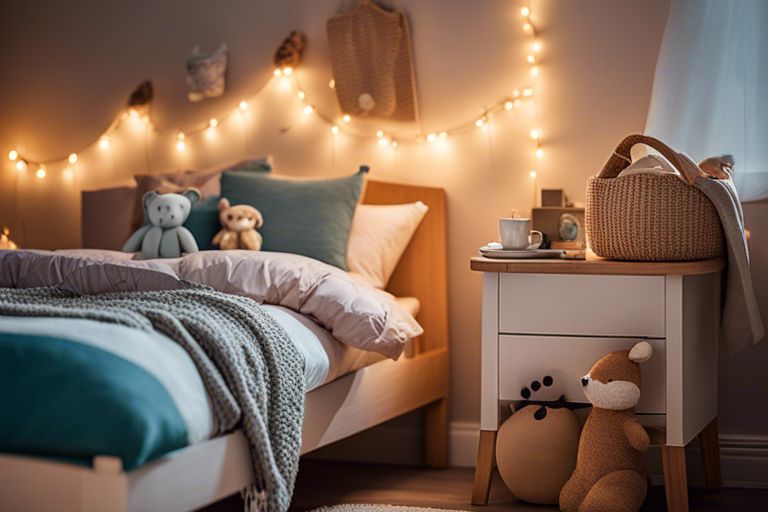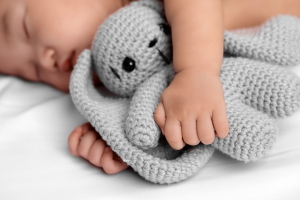Just like adults, children can also experience anxiety, and as a parent, it can be challenging to navigate. However, with the right tools and approach, you can help your child cope with their anxiety effectively. In this blog post, we will provide you with six practical tips that you can implement to support your child through their anxious moments. By following these strategies, you can create a safe and supportive environment for your child to manage their anxiety and thrive.
1. Listen attentively to their feelings without judgement.
2. Encourage deep breathing exercises during moments of stress.
3. Establish a calming routine to promote stability and security.
4. Teach positive self-talk and coping strategies for anxious thoughts.
5. Offer plenty of reassurance and emotional support.
6. Seek professional help if anxiety persists or worsens.
Recognizing the Signs of Anxiety in Your Child
Emotional Indicators
Now, assuming the role of a vigilant parent, it’s crucial to pay attention to emotional indicators that may suggest your child is struggling with anxiety. These indicators can include excessive worry, frequent tearfulness, irritability, and difficulty concentrating. If you notice these signs persisting over time, it’s imperative to address them promptly.
Physical Manifestations
You, as a parent, must also be attuned to the physical manifestations of anxiety in your child. These can include complaints of stomach aches, headaches, rapid heartbeat, sweating, or trembling. While these symptoms may sometimes be attributed to physical illness, they can also be indicative of underlying anxiety issues.
Children often have difficulty articulating their emotions, and physical symptoms may be their way of expressing distress. It’s important to take these manifestations seriously and consider them as potential signs of anxiety that require attention and support.
Creating a Supportive Environment
Open Communication
Even amidst the busyness of daily life, take the time to sit down with your child and encourage open communication. Create a safe space where they feel comfortable expressing their thoughts and feelings without judgment. Listen actively, validate their emotions, and offer reassurance. By fostering open communication, you can help your child feel supported and understood.
Establishing Routine and Structure
There’s a sense of security that comes from having a predictable routine and structure in place. Establishing regular mealtimes, bedtimes, and activities can provide stability and a sense of control, which can be comforting for an anxious child. Consistency in daily schedules can help reduce anxiety and promote a sense of calm.
To establish a routine, create a daily schedule that includes specific times for waking up, meals, schoolwork, playtime, and bedtime. Stick to this schedule as much as possible, but also be flexible when needed. Having a predictable routine can help your child know what to expect and feel more secure in their environment.
Practical Coping Strategies
Breathing Techniques and Relaxation Exercises
Now, one of the most effective ways to help your child cope with anxiety is by teaching them breathing techniques and relaxation exercises. Encourage your child to take slow, deep breaths when they are feeling overwhelmed. You can also guide them through simple relaxation exercises such as progressive muscle relaxation or mindfulness meditation to help them calm their mind and body.
Problem-Solving Skills and Cognitive Reframing
On addressing anxiety in children, problem-solving skills and cognitive reframing can be powerful tools. Teach your child how to break down their problems into smaller, more manageable parts. Encourage them to challenge negative thoughts by replacing them with more positive and realistic ones. By helping your child develop these skills, they can approach their anxiety in a proactive and empowering way.
A child’s ability to problem-solve and reframe their thoughts can significantly impact how they perceive and manage their anxiety. By equipping them with these skills, you are empowering them to become more resilient in the face of challenges, fostering a sense of control and confidence in managing their anxiety.
Professional Help and When to Seek It
Identifying When You Need Outside Help
For some children, anxiety can become overwhelming despite your best efforts to help them cope. If you notice persistent symptoms such as extreme worry, panic attacks, sleep disturbances, or avoidance behaviors that interfere with daily life, it may be time to seek professional help.
Types of Professional Support
Outside professional help can come in various forms, including therapy, counseling, medication management, and psychiatric evaluation. Knowing when to seek each type of support is crucial in providing the best care for your child.
| Therapy | Counseling |
| Helps children talk about their feelings and develop coping strategies. | Provides a safe space for children to express their emotions and fears. |
| Medication Management | Psychiatric Evaluation |
| Prescribed by a psychiatrist to help manage anxiety symptoms. | Assesses the child’s mental health condition and prescribes appropriate treatment. |
Professional support is important in treating childhood anxiety. Therapy and counseling can help children develop coping mechanisms, while medication management and psychiatric evaluation offer additional resources for severe cases. Knowing when to seek each type of professional help is crucial in providing the best care for your child.
Maintaining Your Own Well-being
Self-Care for Parents
Keep in mind that in order to effectively help your child cope with anxiety, you must first take care of yourself. It is important for parents to prioritize their own well-being in order to be a source of strength and support for their children. This includes making time for self-care activities, such as exercise, meditation, or hobbies that bring you joy. Do not forget, you cannot pour from an empty cup.
Managing Anxiety within the Family Dynamic
Little steps can go a long way in managing anxiety within the family dynamic. Open communication is key in creating a safe space for children to express their feelings without judgment. Setting a positive example by managing your own stress levels can also help alleviate anxiety in the family. Encourage healthy coping mechanisms and seek professional help if needed.
On the journey of managing anxiety within the family dynamic, it is important to be patient and understanding. Anxiety can manifest differently in each family member, so it is crucial to approach the situation with empathy and a willingness to listen. By creating a supportive environment and working together, families can navigate through anxiety challenges effectively.
Maintaining Your Well-being
Maintaining your own well-being is not selfish; it is necessary for being a strong support system for your child. Take time to check in with your own emotions and seek support from friends, family, or a therapist if needed. Remember to practice self-compassion and prioritize self-care activities to recharge and stay healthy, both mentally and physically.

Summing up
Considering all points, it’s clear that helping your child cope with anxiety is a crucial task that requires patience, understanding, and practical strategies. By listening to your child, creating a safe and supportive environment, promoting healthy habits, teaching coping skills, seeking professional help when needed, and being a positive role model, you can effectively support your child in managing their anxiety. Remember that every child is unique, so it’s important to tailor your approach to their individual needs. By implementing these practical tips, you can make a significant difference in your child’s ability to navigate their anxiety and thrive in their daily lives.
FAQ
Q: What are some signs that my child may be experiencing anxiety?
A: Some signs that your child may be experiencing anxiety include excessive worry, restlessness, irritability, difficulty sleeping, and avoiding social situations.
Q: How can I talk to my child about their anxiety?
A: When talking to your child about their anxiety, make sure to create a safe and open environment for communication. Listen actively, validate their feelings, and offer reassurance and support. Encourage them to express their emotions and let them know that it’s okay to feel anxious sometimes.
Q: What are some practical tips to help my child cope with anxiety?
A: 1. Teach your child relaxation techniques such as deep breathing and mindfulness exercises.
2. Encourage regular physical activity and a healthy diet to reduce anxiety symptoms.
3. Establish a routine that includes consistent sleep patterns and regular mealtimes.
4. Help your child face their fears gradually through exposure therapy.
5. Limit exposure to situations that trigger anxiety and provide a safe space for them to express their feelings.
6. Consider seeking professional help from a therapist or counselor if your child’s anxiety significantly impacts their daily life.




